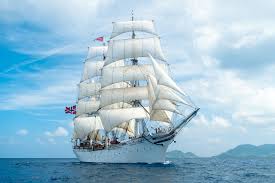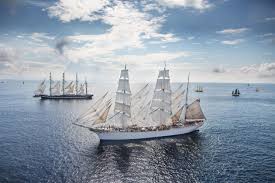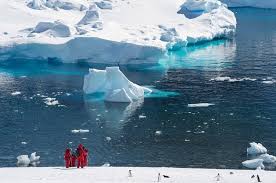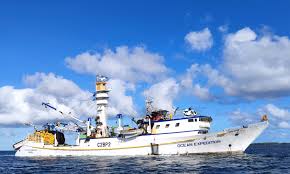The ocean, covering more than 70% of Earth’s surface, remains one of the least explored frontiers of our planet. Ocean expeditions are the key to unlocking the mysteries hidden beneath the waves, offering insight into marine ecosystems, discovering new species, and unveiling geological wonders. These expeditions are essential not only for scientific discovery but also for understanding how the ocean impacts global systems such as climate, weather, and biodiversity.
Significance of Ocean Exploration

The ocean is critical to life on Earth, providing half of the oxygen we breathe and acting as a major carbon sink. It influences weather patterns and regulates temperature, making it integral to the Earth’s climate system. Despite its importance, much of the ocean remains unexplored, with over 80% of its depths still unmapped and unobserved. Ocean expeditions help fill these knowledge gaps, offering data essential for sustainable ocean management and conservation.
Marine biodiversity is another key area of interest. Expeditions often uncover new species, some of which have unique biochemical properties that can be used in medicine or technology. Additionally, studying the ocean’s geological features, such as hydrothermal vents and underwater volcanoes, can provide insights into Earth’s history and plate tectonics.
Modern Technology in Ocean Exploration
Advancements in technology have revolutionized how scientists explore the ocean. Remote-operated vehicles (ROVs), autonomous underwater vehicles (AUVs), and advanced sonar systems allow researchers to reach depths that were once inaccessible. These tools provide detailed images of the ocean floor, enabling the discovery of shipwrecks, underwater mountains, and unique ecosystems.
Satellites and deep-sea sensors also play a crucial role, offering real-time data on ocean temperatures, currents, and salinity. This information is vital for understanding how the ocean interacts with the atmosphere, particularly in the context of climate change.
Furthermore, technologies such as bio-logging devices, attached to marine animals, provide insights into the behavior and migration patterns of species that are difficult to observe directly.
Focus Areas of Recent Expeditions

Recent ocean expeditions have targeted various objectives, ranging from biodiversity studies to geological exploration. One notable area of focus is the deep-sea ecosystems around hydrothermal vents. These extreme environments, characterized by high temperatures and toxic chemicals, are home to unique organisms that thrive without sunlight. Understanding these ecosystems can shed light on the origins of life and potential adaptations for survival in harsh conditions.
Another focus area is the study of coral reefs, particularly in response to climate change. Expeditions have documented coral bleaching events and sought to identify resilient coral species that can withstand rising sea temperatures. This research is critical for developing conservation strategies and protecting marine biodiversity.
Arctic and Antarctic expeditions have also gained prominence, as polar regions are highly sensitive to climate change. Scientists have observed melting ice sheets, shifts in marine ecosystems, and the impact of warming waters on global ocean currents.
Challenges in Ocean Expeditions
Exploring the ocean comes with significant challenges. The harsh conditions of the deep sea, including extreme pressure, low temperatures, and complete darkness, require specialized equipment and expertise. The cost of conducting expeditions is another major hurdle, as deep-sea exploration involves advanced technology, substantial resources, and logistical planning.
Additionally, international collaboration is often necessary, as the ocean spans multiple jurisdictions. Coordinating research efforts and sharing data across countries is essential for comprehensive studies but can be complicated by political and economic considerations.
The Role of Ocean Expeditions in Climate Research

Ocean expeditions contribute significantly to understanding climate change. By studying ocean currents, scientists can predict changes in weather patterns, such as the intensification of hurricanes or shifts in monsoon seasons. Expeditions also monitor the absorption of carbon dioxide by the ocean, which impacts acidification and marine life.
The melting of polar ice is another critical area of research. Expeditions in the Arctic and Antarctic provide data on rising sea levels and the potential consequences for coastal communities. Understanding these changes is vital for developing adaptation strategies and mitigating climate risks.
Marine Conservation and Ocean Expeditions
The insights gained from ocean expeditions are instrumental in marine conservation. By identifying critical habitats and documenting species at risk, expeditions help inform policies aimed pulitoto at protecting marine ecosystems. For example, data from expeditions have led to the creation of marine protected areas (MPAs) that safeguard biodiversity hotspots and regulate human activities such as fishing and mining.
Public awareness is another important aspect. Documentaries and media coverage of ocean expeditions often inspire public interest in marine conservation, highlighting the beauty and fragility of underwater ecosystems.
The Future of Ocean Expeditions
The future of ocean expeditions is promising, with innovations in technology and growing international interest in ocean research. Collaborative initiatives, such as the United Nations Decade of Ocean Science for Sustainable Development (2021-2030), aim to advance ocean exploration and promote sustainable use of marine resources.
Emerging technologies, such as artificial intelligence and machine learning, are expected to enhance data analysis and improve expedition efficiency. These tools can process vast amounts of information collected during expeditions, identifying patterns and trends that might otherwise go unnoticed.
Citizen science is another exciting development, with programs that involve the public in ocean research. From collecting data on beach conditions to deploying sensors from recreational boats, these initiatives expand the reach of scientific exploration.
Conclusion
Ocean expeditions are at the forefront of exploring one of the last great frontiers on Earth. They uncover new knowledge about marine life, geological processes, and the ocean’s role in global systems, contributing to science, conservation, and climate research. As technology advances and international collaboration increases, the potential for discovery is limitless, offering hope for a deeper understanding and sustainable future for our oceans.





